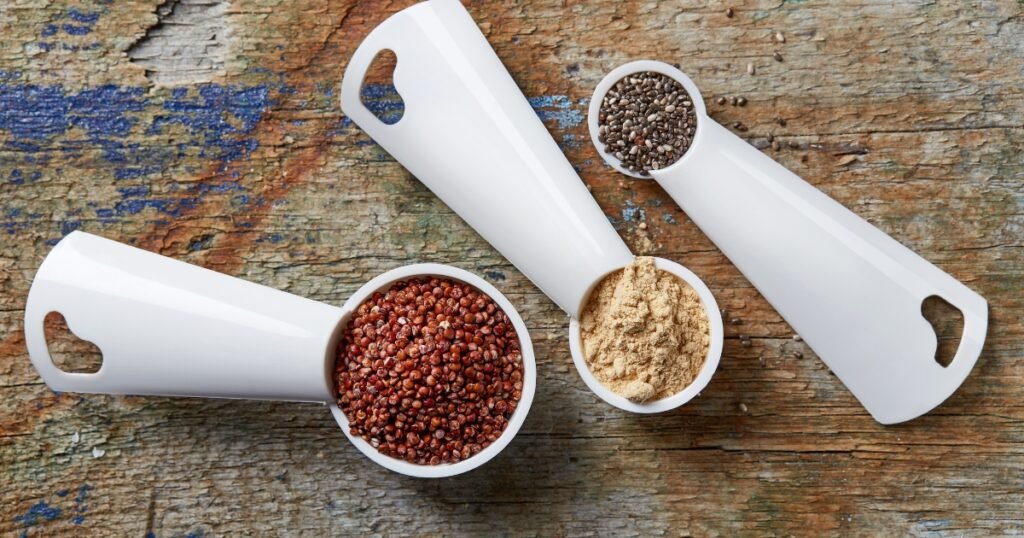Last Updated on 14 June 2024
Ovulation is a crucial part of a woman’s menstrual cycle and plays a vital role in fertility and the chances of getting pregnant. However, for some women, ovulation may not occur regularly or at all, leading to difficulties in conceiving. Irregular periods and anovulation (the absence of ovulation) can be indicators of hormonal imbalances and other underlying issues that affect reproductive health.
The good news is that there are natural methods that can help induce ovulation safely and promote fertility. Women can support their bodies in naturally inducing ovulation by making simple lifestyle adjustments, incorporating certain dietary changes, and using natural supplements and herbs. This blog will reveal how to induce ovulation naturally.
Understanding Ovulation and Its Importance
Ovulation is when a mature egg is released from the ovary and ready for fertilization. It usually occurs about halfway through the menstrual cycle and is triggered by a surge in luteinizing hormone (LH). Ovulation is essential for fertility as it provides an opportunity for the egg to be fertilized by sperm and for pregnancy to occur.
Maintaining optimal hormone levels is crucial for regular ovulation and fertility. When hormone levels are imbalanced, it can disrupt the menstrual cycle and inhibit ovulation. Ovulation induction is a method used to stimulate ovulation in women who do not ovulate regularly. It can be achieved through lifestyle adjustments, dietary changes, natural supplements, and herbs.
These signs and symptoms of ovulation can vary from woman to woman, so tracking them over several cycles is important to determine patterns and accurately predict ovulation. Monitoring these indicators over several cycles allows you to identify patterns and predict when you will most likely ovulate. This knowledge can be invaluable when trying to conceive or practicing natural family planning.
Lifestyle Adjustments to Promote Ovulation
Making certain lifestyle adjustments can promote ovulation and improve overall reproductive health. Here are some key changes to consider:
- Maintain a healthy weight: Being underweight or overweight can disrupt hormone levels and ovulation. Aim for a healthy BMI (body mass index) to support regular ovulation.
- Exercise regularly: Regular physical activity can help regulate hormone levels and promote optimal ovulation. Aim for at least 30 minutes of moderate exercise most days of the week.
- Eat a balanced diet: Consuming a nutritious diet rich in whole grains, fruits, vegetables, lean proteins, and healthy fats can support hormonal balance and ovulation.
- Manage stress: Chronic stress can interfere with hormonal balance and ovulation. Incorporate stress management techniques such as meditation, yoga, or deep breathing exercises into your daily routine.
Adopting a healthy lifestyle and making these changes can create a supportive environment for regular ovulation and improve your chances of conceiving.
Dietary Changes to Enhance Fertility
A healthy diet plays a crucial role in promoting fertility and supporting ovulation. Here are some dietary changes that can enhance fertility:
- Whole grains: Replace refined grains with whole grains, such as quinoa, brown rice, and whole wheat bread. These provide essential nutrients and fiber.
- Folic acid: Increase your intake of folic acid-rich foods like leafy greens, beans, and fortified cereals. Folic acid is important for reproductive health.
- Fatty acids: Include sources of healthy fats like avocados, olive oil, and fatty fish in your diet. Omega-3 fatty acids support hormone production and ovulation.
- Limit caffeine intake: Excessive caffeine consumption can interfere with hormonal balance and ovulation. Limit your intake to one to two cups of coffee per day.
Incorporating these dietary changes can optimize your fertility and support regular ovulation.
The Role of Physical Activity in Stimulating Ovulation
Regular physical activity offers numerous health benefits and can stimulate ovulation. Here’s how physical activity affects ovulation:

- Hormone regulation: Physical activity helps regulate hormone levels, including insulin and sex hormones, essential for ovulation.
- Insulin sensitivity: Exercise improves insulin sensitivity, reducing the risk of insulin resistance, a condition that can disrupt ovulation.
- Weight management: Regular physical activity can help maintain a healthy weight or promote weight loss if needed. Obesity can interfere with ovulation.
- BMI considerations: Based on your body mass index (BMI), find a balance in physical activity. Aim for at least 150 minutes of moderate-intensity weekly exercise for optimal ovulation.
Incorporating regular physical activity into your routine can support ovulation and improve your chances of conceiving.
How to induce ovulation naturally with Supplements and Herbs
Natural supplements and herbs can support ovulation and promote reproductive health. Here are some options to consider:
- Vitamins and minerals: Certain vitamins and minerals, like vitamin E, zinc, and folic acid, play a crucial role in reproductive health and can support ovulation.
- Herbal remedies: Some herbal remedies, such as chasteberry, maca root, and red clover, have been traditionally used to promote ovulation and female fertility.
- Supplements: Certain supplements, like myo-inositol and N-acetyl cysteine (NAC), have shown promise in supporting ovulation and improving fertility.
It’s important to consult with a healthcare provider before starting any supplements or herbal remedies to ensure they are safe and appropriate.
Vitamins and Minerals That Support Ovarian Health
Certain vitamins and minerals are essential for maintaining ovarian health and supporting ovulation. Here are some key nutrients to consider:
- Vitamin E is an antioxidant that helps protect the eggs and supports their development.
- Zinc plays a crucial role in reproductive health and is important for producing healthy eggs.
- Folic acid is necessary for proper cell division and DNA synthesis. It is crucial for the development of healthy eggs.
- Antioxidants like vitamin C and selenium help protect the eggs from free radicals and support overall reproductive health.
Including foods rich in these nutrients, such as leafy greens, nuts, seeds, and citrus fruits, can help support ovarian health and improve ovulation.
Herbal Remedies Known to Induce Ovulation
Herbal remedies have been used for centuries to support reproductive health and induce ovulation. Here are some herbal remedies known to have ovulation-inducing properties:

- Chasteberry: Chasteberry, also known as Vitex agnus-castus, has been traditionally used to regulate hormones and support ovulation.
- Maca root: Maca root is a Peruvian herb known for its hormone-balancing properties. It can help regulate menstrual cycles and support ovulation.
- Red clover: Red clover contains phytoestrogens to help balance estrogen levels and support ovulation.
It is important to note that herbal remedies can have varying effects on individuals, and it’s best to consult a healthcare provider before using them.
The Impact of Stress on Ovulation and Fertility
Stress can have a significant impact on ovulation and fertility. When the body is under stress, it produces higher levels of stress hormones like cortisol, which can disrupt the delicate balance of reproductive hormones. Chronic stress can interfere with the release of luteinizing hormone (LH) and follicle-stimulating hormone (FSH), leading to irregular or absent ovulation. Stress can also affect libido and sexual function, further impacting fertility. Managing stress through relaxation techniques, exercise, and self-care practices can help support ovulation and improve fertility outcomes.
Understanding the Link Between Stress and Ovulation
Stress can have a significant impact on a woman’s ovulation. When we experience stress, our bodies produce cortisol, a hormone that can disrupt the delicate balance of other hormones involved in ovulation. High levels of cortisol can interfere with the release of luteinizing hormone (LH), which is necessary for ovulation. In addition, chronic stress can affect the regularity of menstrual cycles, making it more difficult to predict ovulation. Managing stress through relaxation techniques, exercise, and a healthy lifestyle can help regulate hormone levels and support healthy ovulation.
Natural Stress-Relief Techniques to Improve Fertility
Reducing stress levels is essential for improving fertility and supporting healthy ovulation. Incorporating relaxation techniques into your daily routine can help manage stress and promote hormonal balance. Practices such as meditation, deep breathing exercises, yoga, and mindfulness can help reduce stress and promote a sense of calm. Regular physical activity, getting enough sleep, and maintaining a healthy diet are also important for managing stress and supporting overall fertility. Taking time for yourself, engaging in activities you enjoy, and seeking support from loved ones can also help alleviate stress and improve your chances of ovulation.
The Importance of Sleep in Fertility and Ovulation
Sleep quality is crucial for maintaining hormonal balance and supporting healthy ovulation. During sleep, our bodies produce and regulate various hormones, including progesterone and estrogen, essential for fertility. Lack of sleep or poor sleep quality can disrupt the delicate balance of these hormones, leading to irregular ovulation and fertility issues. Creating a sleep routine, optimizing the sleep environment, and practicing relaxation techniques before bed can help improve sleep quality and enhance fertility.
How Sleep Affects Hormonal Balance and Ovulation
Sleep plays a vital role in maintaining hormonal balance and supporting ovulation. During sleep, our bodies produce progesterone, a hormone essential for preparing the uterus for implantation and supporting a healthy pregnancy. Lack of sleep or disrupted sleep patterns can disrupt the production of progesterone and other hormones involved in ovulation, leading to irregular menstrual cycles and difficulty conceiving. Ensuring adequate quality sleep, aiming for 7-9 hours per night, can help regulate hormone levels and support healthy ovulation.
Tips for Improving Sleep Quality to Boost Fertility
Improving sleep quality is essential for boosting fertility and supporting healthy ovulation. Here are some tips to enhance sleep quality:

- Establish a consistent sleep schedule by going to bed and waking up at the same time every day.
- Create a relaxing sleep environment by keeping the bedroom cool, dark, and quiet.
- Avoid caffeine and stimulants in the evening, as they can interfere with sleep.
- Engage in relaxation techniques before bed, such as deep breathing or meditation, to calm the mind and body.
- Limit exposure to electronic devices before bed. Blue light can disrupt the production of melatonin, a hormone that regulates sleep.
- Maintain a healthy lifestyle by exercising regularly, eating a balanced diet, and managing stress levels, as these factors can impact sleep quality and fertility.
Understanding and promoting ovulation through natural methods can significantly impact fertility and overall reproductive health. You can support your body’s natural processes by incorporating lifestyle adjustments, dietary changes, physical activity, and stress relief techniques. Taking care of your sleep quality and considering natural supplements and herbs can further enhance your chances of successful ovulation. Remember, each person’s body is unique, so listening to your body’s cues and consulting a healthcare provider is essential. Embracing these natural methods with patience and consistency can help you toward improved ovulation and fertility.









